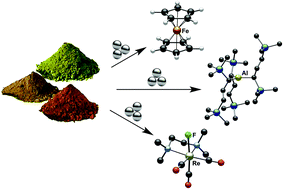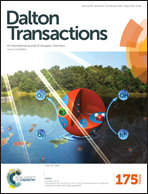Advances in organometallic synthesis with mechanochemical methods
Abstract
Solvent-based syntheses have long been normative in all areas of chemistry, although mechanochemical methods (specifically grinding and milling) have been used to good effect for decades in organic, and to a lesser but growing extent, inorganic coordination chemistry. Organometallic synthesis, in contrast, represents a relatively underdeveloped area for mechanochemical research, and the potential benefits are considerable. From access to new classes of unsolvated complexes, to control over stoichiometries that have not been observed in solution routes, mechanochemical (or ‘M-chem’) approaches have much to offer the synthetic chemist. It has already become clear that removing the solvent from an organometallic reaction can change reaction pathways considerably, so that prediction of the outcome is not always straightforward. This Perspective reviews recent developments in the field, and describes equipment that can be used in organometallic synthesis. Synthetic chemists are encouraged to add mechanochemical methods to their repertoire in the search for new and highly reactive metal complexes and novel types of organometallic transformations.


 Please wait while we load your content...
Please wait while we load your content...